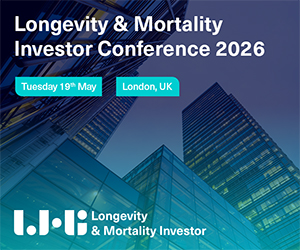Private Equity Q&A: Richard Hickman, HVPE
The past few years has seen an increasing amount of coverage in the trade media about the ‘democratisation’ of private equity, with tech platforms emerging to facilitate high net worth capital into the market. But in reality, private equity has been democratised for years, via the public equity market. Greg Winterton spoke to Richard Hickman, Managing Director, HVPE, to get his thoughts on the space.
GW: Richard, HVPE has been listed since 2007, but for those less familiar, tell us a little about the firm.
RH: HVPE is a listed investment company and we've been on the market now since the IPO, as you say, in December 2007. Since then, HVPE has grown assets organically by investing in funds managed by HarbourVest Partners, which in turn provide exposure to global private companies.
The portfolio spans across the US, Europe and Asia, encompassing different types and styles of private equity investing – everything from seed venture, i.e. the early stage companies, through later stage venture and growth equity, through to every category of buyouts, from small to mega-cap buyouts, and then, finally, real assets and private credit. This means the portfolio is highly diversified with exposure to 1000 material underlying holdings, making HVPE resilient while providing access to many of the world’s fastest growing companies.
GW: What is your take on the whole ‘democratisation’ of private equity conversation? Do you feel like the listed space has been sidelined – or even excluded – from this conversation?
RH: I don't necessarily think it’s been excluded, it's just that it's been around for a long time – I think investors who know about it appreciate it and make use of it to gain access to the types of portfolio exposure that the space can offer.
I don't think it has a high enough profile, so I suppose to some extent it may have been overlooked by those commenting on the new structures – perhaps they're not aware of listed PE.
Clearly there are interesting new products being launched that absolutely have a place in the market, but I would say listed PE is probably the most flexible option for most investors because the shares are freely traded: they can be bought and sold at any time during market hours, there's no inherent restriction on liquidity. There are supply and demand factors that affect the price that will be achieved, but, in theory, an investor can always sell.
There are benefits in terms of transparency – reporting and disclosure are obviously required by the public markets – and the ecosystem of analysts, commentators and indeed the press. So I think there are clear advantages to listed PE, which are probably not fully appreciated.
GW: There are even nuances within the listed private equity market, however – specifically, the underlying exposure of the vehicle. What are your thoughts here?
RH: So there are two main types of listed structure for private markets investors. You have a choice of investing in the management companies, i.e. the firms that are making investments and taking a fee for doing so, and you're investing in the equity of that management company, looking for a share of that fee revenue. The other approach is to invest in a listed company that owns private equity assets, i.e. is actually making investments ultimately into the underlying companies. And so that is an investment in the funds or the companies rather than the manager of those funds or companies. Within that second category there is either the direct portfolio approach, where a listed investment company directly owns a share of an underlying operating business, either alongside another manager or in its own right. Or you have the fund of funds approach where there's a listed company that is investing in funds, which in turn invest in companies, and that's where HVPE resides.
GW: One persistent trend in the listed PE space is the discount to NAV that listed vehicles seem to continually exhibit, albeit, to differing extents at different times. What’s the message to investors here?
RH: I think there's a challenge in the overall investment company space at the moment, where discounts across even conventional public equity investment trusts are wider than normal – so that's been reflected throughout the industry. I think alternative investments have been particularly hard hit.
Anything that is privately held, such as private equity, infrastructure funds or real estate, where there has been a degree of scepticism over valuations in the rising interest rate environment, has seen a direct impact on demand as a result of investors being able to access higher rates on their cash for essentially zero risk. So there's been a shortfall in demand recently. It’s important to remember that the private equity industry emerged, and thrived, during the 1980s and 1990s, when interest rates were much higher than they are today.
There are also issues in terms of the environment in which we're operating. There’s the requirement on wealth managers and institutional investors to report look-through costs, and with the current regime presenting limitations in terms of the accuracy of cost reporting this presents challenges. HVPE encourages investors to look at returns net of costs, which demonstrates the long term value listed PE can provide in portfolios.
Finally, I think there's the UK-centric element to this. On a global level, the UK market is less attractive to investors than perhaps it once was and so there have been outflows generally from the UK. Any investment company or trust in the FTSE 250 of which there are 92, will be impacted by a global investor selling FTSE 250 ETFs.
I think there is what is hopefully a short term confluence of negative factors that have weighed on share prices. All of those have the potential to either be alleviated or go into reverse in the years ahead.
Naturally, I remain optimistic about the prospect for discounts longer term.
GW: Lastly, Richard, when should any investor – whether that be a large institution or an individual investor – choose the listed space over a private fund for their private equity allocation?
RH: There are a number of advantages of listed versus private funds, especially in terms of liquidity, daily pricing, the reporting that we upload to our website, the analyst commentaries, and the fact that you're accessing a fully invested portfolio on day one.
Committing to a conventional fund, generally speaking, there'll be an element of cash drag or a delay in capital calls, whereas with a listed fund, you're investing in something that already is fully invested and continuing to invest.
**********
Richard Hickman is Managing Director at HVPE
© The Sortino Group Ltd
All Rights Reserved. No part of this publication may be reproduced, stored in a retrieval system or transmitted in any form or by any means, electronic, mechanical, photocopying, recording or scanning or otherwise, except under the terms of the Copyright, Designs and Patents Act 1988 or under the terms of a licence issued by the Copyright Licensing Agency or other Reprographic Rights Organisation, without the written permission of the publisher. For more information about reprints from AlphaWeek, click here.









